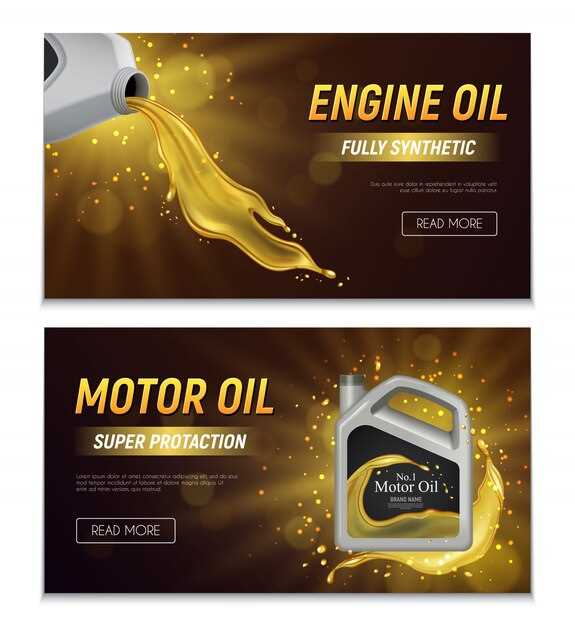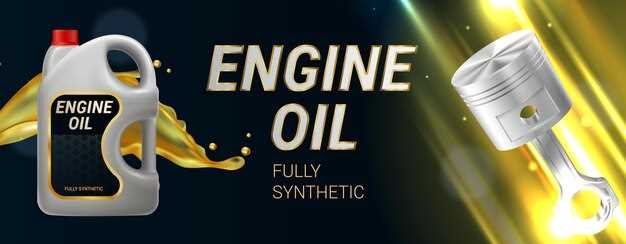
When it comes to the performance of exotic sports cars, the importance of quality engine oil cannot be overstated. Proper lubrication is essential to ensure that the high-performance engines of these vehicles operate smoothly and efficiently. The right oil not only reduces friction but also enhances overall engine longevity, allowing drivers to enjoy the full potential of their machines.
Exotic sports cars often operate under extreme conditions, where the stresses on the engine are significantly higher than in conventional vehicles. Therefore, choosing the best engine oil tailored for these unique requirements is crucial. High-quality synthetics, for instance, are specifically formulated to withstand intense heat and pressure, providing superior lubrication and protection against wear.
In this article, we will explore a selection of the best engine oils that have been meticulously reviewed for exotic sports cars. We will delve into their characteristics, benefits, and why they are the top choices for enthusiasts who demand nothing but the best for their high-performance vehicles. Understand the crucial role that oil plays in maintaining the integrity and performance of your exotic sports car, and discover which products can help you preserve its excellence.
Top Synthetic Oils for High-Performance Engines

When it comes to high-performance engines, choosing the right synthetic oil is crucial for optimal lubrication and efficiency. Synthetic oils are engineered to provide enhanced performance characteristics compared to conventional oils, making them ideal for exotic sports cars that demand superior protection under extreme conditions.
1. Mobil 1 Extended Performance: Known for its advanced synthetic formula, Mobil 1 Extended Performance offers excellent thermal stability and oxidation resistance. This oil helps to minimize engine wear and tear, ensuring long-lasting lubrication even under high-stress situations. With its ability to withstand high temperatures, it is a top choice for drivers pushing their engines to the limit.
2. Amsoil Signature Series: Amsoil Signature Series oil is formulated for high-performance engines, providing superior protection and performance. Its robust formulation includes additional detergents that clean engine parts, reducing deposits and improving overall efficiency. This oil is specifically designed to handle high RPMs and demanding conditions, making it perfect for sports cars.
3. Castrol EDGE Advanced Full Synthetic: Featuring Fluid Titanium Technology, Castrol EDGE is engineered to reduce friction and enhance performance. This synthetic oil adapts to the needs of the engine, providing strong lubrication under various driving conditions. Its exceptional performance capabilities make it an excellent choice for those who prioritize engine responsiveness and protection.
4. Royal Purple High-Performance Synthetic Oil: Royal Purple is renowned for its high-performance synthetic oils that deliver remarkable protection and performance. Its unique blend of additives provides superior lubrication, which is vital for maintaining engine health, especially in high-revving situations. This oil is tailored for enthusiasts looking to maximize their engine’s potential.
5. Pennzoil Platinum Full Synthetic: Pennzoil Platinum is made from natural gas, providing a high level of purity and performance. Its advanced formulation offers excellent lubrication, allowing engines to run more efficiently and with less wear. This oil excels in maintaining performance, especially for turbocharged and supercharged engines found in many exotic sports cars.
When selecting synthetic oils for high-performance engines, consider factors such as viscosity, thermal stability, and the specific needs of your vehicle. The right lubricant will ensure that your exotic sports car remains in peak condition, delivering the exhilarating performance that enthusiasts crave.
How to Choose Oil Viscosity for Exotic Cars
Selecting the correct oil viscosity for your exotic sports car is crucial for optimal performance and longevity. The viscosity of oil affects its ability to provide proper lubrication, especially under the extreme conditions these high-performance vehicles often face. Here are key considerations when choosing the right oil viscosity:
- Manufacturer Recommendations: Always refer to the vehicle’s owner manual for recommended oil viscosity. Manufacturers spend significant time determining the best oil for their engines, considering factors such as design and operating conditions.
- Temperature Range: Consider the typical operating temperatures for your engine. Thicker oils (higher viscosity) are better suited for high-temperature environments, whereas thinner oils (lower viscosity) perform well in cooler conditions. Choose an oil that maintains proper lubrication across the temperatures you expect.
- Driving Style: Your driving habits play a significant role in viscosity selection. Aggressive driving or frequent track days may require higher viscosity to withstand increased heat and friction, while routine highway driving might allow for a lighter oil.
- Oil Types: Familiarize yourself with different oil types available in the market:
- Conventional Oil: Suitable for many engines, though it may not provide the best protection in high-performance scenarios.
- Synthetic Oil: Offers superior lubrication and can maintain performance in extreme temperatures, making it a preferred choice for exotic cars.
- Semi-Synthetic Oil: A blend that provides some benefits of synthetic oil while being more affordable.
- Viscosity Grades: Analyze the viscosity grading system. Common grades include 5W-30, 10W-40, and others. The first number (before the “W”) indicates low-temperature performance, while the second number indicates high-temperature viscosity. Select a grade that caters to both extremes of your driving conditions.
Choosing the right oil viscosity is essential to ensure proper lubrication, protect engine components, and enhance overall performance. Make informed decisions based on manufacturer guidance, driving conditions, and oil characteristics to maintain your exotic sports car in peak condition.
Understanding the Role of Additives in Engine Oil
Additives play a crucial role in enhancing the performance and longevity of engine oil, especially in exotic sports cars that demand high-level lubrication capabilities. These chemical compounds are blended into the base oil to address specific requirements and improve its overall functionality.
One of the primary functions of additives is to enhance the oil’s viscosity. Viscosity modifiers ensure that the oil maintains optimal thickness across varying temperatures, providing reliable lubrication whether the engine operates in cold or hot conditions. This property is vital for preventing wear and tear on engine components.
Detergents and dispersants are another category of additives that help keep the engine clean by neutralizing acids and preventing sludge buildup. They ensure that contaminants are suspended within the oil, allowing them to be safely filtered out during oil changes. This cleanliness is critical for maintaining engine performance and preventing damage.
Antioxidants are included to slow down oil degradation caused by high temperatures and the presence of oxygen. They help to prolong the oil’s lifespan, ensuring that it retains its protective properties throughout its service interval. This is particularly important for high-performance engines, which operate under extreme conditions.
Moreover, anti-wear additives form a protective film on metal surfaces, reducing friction and minimizing wear during operation. This property is essential for engines that experience high RPMs and extreme stress, as it directly contributes to engine longevity and reliability.
Lastly, friction modifiers enhance the lubrication process by reducing friction between moving parts. This results in improved engine efficiency, better fuel economy, and enhanced overall performance. In high-performance sports cars, maximizing efficiency is critical for achieving optimal speed and responsiveness.
In summary, additives in engine oil are vital for ensuring effective lubrication and protecting the engine. Their specific functions cater to the demanding needs of exotic sports cars, ultimately contributing to improved performance and extended engine life.
Comparing Conventional vs. Synthetic Oil for Sports Cars
When it comes to maintaining the high performance of exotic sports cars, the choice of engine oil is crucial. Engine oil plays a vital role in lubrication, cooling, and overall engine health. Sports car enthusiasts often debate the merits of conventional versus synthetic oil. Understanding these differences can help you make an informed decision for your vehicle.
Conventional oil is derived from crude oil and has been the standard for decades. It offers reliable protection but generally has a shorter lifespan and lower thermal stability compared to its synthetic counterpart. Synthetic oil, on the other hand, is engineered through a chemical process that results in a more refined product. It provides superior performance, particularly in extreme driving conditions common with sports cars.
| Feature | Conventional Oil | Synthetic Oil |
|---|---|---|
| Base Material | Crude Oil | Chemically Engineered |
| Viscosity Stability | Lower Stability | High Stability |
| Temperature Range | Limited Performance | Wider Range |
| Lifespan | Shorter Drain Intervals | Extended Drain Intervals |
| Cost | Generally Lower | Higher Initial Cost |
| Engine Protection | Basic Protection | Enhanced Protection |
For sports cars that operate under high stress and extreme conditions, synthetic oil often proves to be the superior choice. It resists breakdown and maintains its lubricating properties longer than conventional oil. Additionally, synthetic oils can provide better fuel efficiency and reduce engine wear, contributing to the longevity of high-performance engines. Ultimately, the decision between conventional and synthetic oil will depend on your driving habits and the specifications of your sports car.
Maintenance Tips for Optimal Lubrication in Exotic Vehicles

Ensuring optimal lubrication in exotic sports cars is crucial for performance and longevity. Here are specific maintenance tips to keep in mind:
1. Use High-Quality Synthetic Oils: Always choose premium synthetic engine oils designed for high-performance engines. Synthetic oils provide superior lubrication, reducing friction and wear on engine components. They also have better thermal stability, which is essential for high-temperature operations.
2. Regular Oil Changes: Exotic vehicles often have higher operating temperatures which can degrade oil faster. Adhere to a strict oil change schedule, typically every 5,000 to 7,500 miles, or as recommended by the manufacturer. Regular changes ensure that contaminants are removed, maintaining effective lubrication.
3. Monitor Oil Levels: Frequently check the engine oil level using the dipstick. Low oil levels can lead to increased friction and, ultimately, engine damage. Always top off with the same type of synthetic oil to maintain consistency in lubrication.
4. Optimize Driving Conditions: Limit extreme driving conditions as much as possible. Excessive acceleration, high RPMs, or driving in severe weather can increase oil breakdown. When possible, allow the engine to warm up before aggressive driving, ensuring that oil flows effectively through the lubricating system.
5. Use Quality Oil Filters: A high-quality oil filter is vital for trapping debris and contaminants in the oil, which can compromise lubrication. Replace the oil filter with every oil change to ensure efficient performance and extended engine life.
6. Maintain Cooling Systems: Properly functioning cooling systems help regulate engine temperature and protect oil from overheating. Regularly check coolant levels and consider a coolant flush if necessary to ensure optimal performance.
7. Store Properly: If your exotic sports car is not driven regularly, it’s essential to store it properly. Use a synthetic oil that offers excellent protection during long periods of inactivity, and consider using a battery maintainer to keep electrical systems in good shape.
By adhering to these maintenance tips, you can ensure that your exotic vehicle remains in peak condition, offering superior performance backed by exceptional lubrication.
Real-World Testing Results: Which Oils Perform Best?
When it comes to exotic sports cars, engine oil selection is critical for optimal performance and longevity. Real-world testing has revealed significant disparities in how different oils perform under extreme conditions. The most effective motor oils provide superior lubrication, reduce friction, and maintain viscosity at high temperatures.
In testing, several top-tier synthetic oils have emerged as frontrunners. For instance, Oil A showed excellent shear stability, retaining its protective film even after intense track sessions. This translates to better engine protection and reduced wear. Meanwhile, Oil B excelled in cold-start scenarios, demonstrating quick lubrication flow, which is crucial for high-performance engines.
Additionally, Oil C was noted for its high-temperature performance, maintaining stable viscosity throughout extended usage. This oil’s ability to prevent breakdown in demanding situations ensures that the engine operates at peak efficiency. In contrast, traditional oils often struggle to deliver consistent lubrication under similar conditions, resulting in increased friction and potential engine damage.
The results also highlighted the importance of additive packages in modern engine oils. Oils enriched with advanced additives performed better in terms of deposit control and oxidation resistance, significantly enhancing engine cleanliness and durability over time.
Summarizing the findings, while many oils are suitable for everyday driving, those particularly formulated for high-performance machines demonstrate superior results in real-world environments. Comparing the performance metrics from these tests allows enthusiasts to make informed decisions when selecting oil that not only meets but exceeds the rigorous demands of exotic sports cars.
